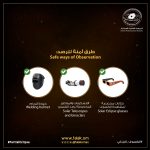Muscat: Much like heart attacks, strokes are starting to become more and more common. Often the cause of mortal worry, it is only natural that the varying opinions about strokes would go on to be held true by the majority. However, more often than not, these presumptions about the issue turn out to be nothing but myths. In order to better battle the issue, it is necessary to be well informed about strokes, its causes, and its symptoms.
Here are a list of myths regarding strokes that have been debunked by healthcare professionals.
MYTH: Only the elderly are prone to strokes.
Read More
- Why don’t more women participate in cardiac rehabilitation?
- Toxic Positivity: When “Stay Positive” Gets in the Way
- Embracing Omani parent’s culture: A Paragon to a Healthy Living
- We have plans to introduce robotic surgery in Oman, says Dr. Azad Moopen
- 175-bed multispecialty Aster Royal Al Raffah Hospital opens in Al Ghubra
While this has been held true for a long time, it is not necessarily the case. There is no evidence to support the fact that young people cannot develop stroke or it is an elderly specific disease. There are various risk factors for stroke, including modifiable and nonmodifiable characteristics. These risk factors include diabetes, hypertension, Family history, fluctuating lipid profiles, smoking etc. Given the widely believed myth regarding stroke being age-specific, an alarming percentage of youth don’t pay attention to these risk factors.
MYTH: Stroke symptoms can not be identified.
In medical terminology there is a term called “F.A.S.T.” – which means Face, Arm, Speech, and Time. These are used to suspect early symptoms of stroke. Early symptoms might include facial droop,weakness in the arm or leg and slurred speech. These are the most concerning symptoms that need immediate care, if prevalent, and as such, can help prevent a stroke.
MYTH: Stroke and seizures are same
A stroke and a seizure are entirely two different neurological disorders. Stroke happens due to the lack of blood supply to the brain, or bleeding in the brain. On the other hand, a seizure can be due to physical or behavioural change or due to abnormal and excessive electrical discharges in the brain. However, it is worth noting that seizures can happen as a consequence of a stroke.
MYTH: Strokes can be healed by intake of Aspirin.
This is a borderline dangerous belief that has led to even further damage in the patient. The use of Aspirin in case of a stroke should be avoided without the consent of the doctor as it may lead to even more disastrous conditions, in case the stroke is due to bleeding in the brain. In case of hemorrhagic stroke, use of any medication without the consent of the doctor should be avoided.
MYTH: Strokes can not be treated anyhow.
The most common type of strokes are Ischemic strokes, which occur due to reduced blood supply to the brain because of a clot. An acute ischemic stroke can be treated by giving thrombolytic agents to break the clot, although the effectiveness of this treatment is time dependent. If the person reaches hospital after 4.5 hours of the onset of the symptoms, the benefits are not usually seen. In fact, time is of the essence in the treatment of any stroke.
Stay informed, and refrain from spreading misinformation regarding something as significant as a stroke. Refrain from administering self-medication as well. If someone is showing symptoms of a stroke, or suspects he or she may have had a stroke, immediately rush them to a hospital. And above all, remember the concept of “F.A.S.T.” – Face, Arm, Speech, and Time.







